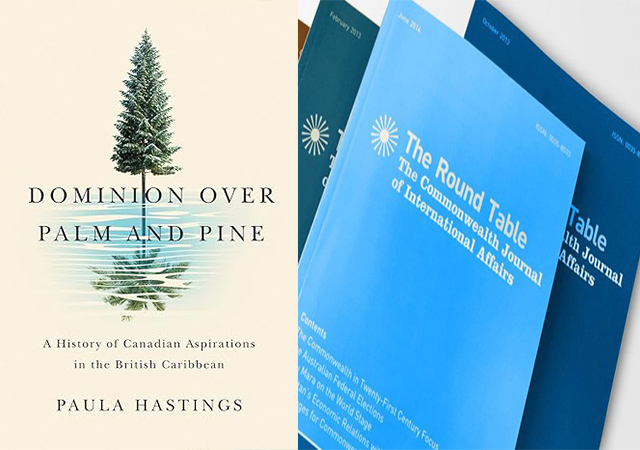
[This is an excerpt from an article in The Round Table: The Commonwealth Journal of International Affairs.]
From Hastings perspective, Canada’s imperial and expansionist vision paralleled the principles and design of British and Americans, the ‘paternalistic assumption that capitalism, democracy, and other Western values should be imported to the global South persisted’ (p. 10). Her work therefore questions the ethos behind the modern construction of Canada as a benevolent nation. Her findings show that the country’s claim of a pro-human rights culture and the constructed self-image as a ‘progressive’ and ‘egalitarian society’ (p. 10) are, therefore, more of a façade than a true commitment to a raceless society. It could be argued that it also puts into question all other aspects of Canadian foreign policy, including official economic and humanitarian aid and, more importantly, the role of Canadian business interests overseas.
The case of Canadian expansionist efforts in the Caribbean and their imperialist desires to carve out a piece of the region for their own self-interest reveal the existence of two Canadas, one that explicitly denies white supremacy as part of nation building and one that implicitly defends the whiteness of Canada. Implicit, perhaps, because Canada’s commitment to the principles of Liberal Internationalism impeded those in power from moving past the rhetoric of multilateralism and the commitment to a rule-based normative system – a rhetoric that would have quickly shifted to a classical realist tone if Canada had been able to successfully annexe territory in the Caribbean and overcome the imperial dynamics imposed by Britain and later in the 20th century by the United States.
International education: post-pandemic imperatives for Canada and the United Kingdom
Canada and COVID-19: The longer-term geopolitical implications
Canada in the Commonwealth
It was these dynamics that stopped Canadian ‘unionists’ from achieving their goals in the Caribbean, together with public apathy and resistance from political, business and public leaders, including Black Canadians (p. 11). Nevertheless, Hastings’ work reveals that Canadian international business leaders did not give up on their Caribbean dream, capitalising on private-public partnerships in order to establish key markets in the Caribbean, but disregarding the fact that these business ventures were also intertwined with British and American interests in the region. In such cases, racism and the imposition of white supremacy played its part, implicitly shaping the labour markets and the class structures across the Caribbean markets where Canadian businesses were present.
Hastings’ objective of highlighting the early roots of Canada’s own racism, by placing greater emphasis on the racial tensions behind the expansionist efforts, ultimately negates the opportunity to shed light on the power of business interests that ultimately demarcated the trajectory of Canada’s own imperialist efforts in the Caribbean region. A closer look at temporal and spatial dimensions of Canadian business and economic history would have revealed that ‘unionist’ politicians where simply trying to facilitate market opportunities for Canadian businesses in the region, and that the ideas of ‘territorial expansion and consolidation’ were, in many instances, integral part of the international business strategy of Canadian companies and subsidiaries (p. 3).
Ultimately, Hastings concludes that annexing territories ‘with predominantly Black populations was at fundamental odds with the settler state’s racial agenda’ (p. 13). Beyond race, and from a business perspective, it was not a good deal for Canadian businesses that only pursued control of resources, commodities, and markets in the Caribbean. History seems to indicate that the accountability to newly absorbed populations, which comes with annexation was, and continues to be, a social, political and fiscal burden, when all that was pursued was economic control. This trend continues to shape Canadian presence in the Caribbean today. Canada, at the end, is a nation with imperialist desires, and a less ‘tolerant’ and ‘hospitable’ (p. 203) nation than what the state propaganda machine projects; an accomplice ‘in the long history of white supremacy’ (p. 230) and partly responsible for the ‘poverty and underdevelopment in the Caribbean’ (p. 230).
Stefano Tijerina is with the
Palm and Pine: A history of Canadian aspirations in the British Caribbean by Paula Hastings, Montreal and Kingston, McGill-Queen’s University Press, 2022.



